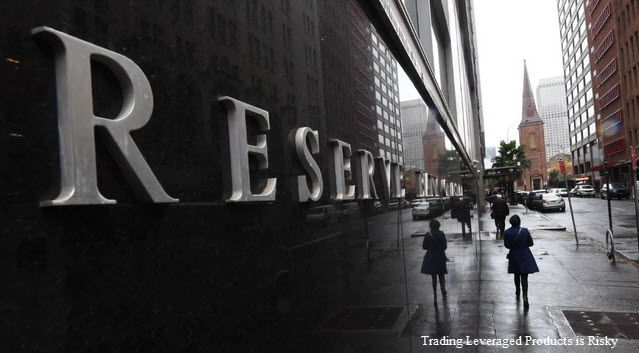A rally of major proportions ensued in bonds and stocks last week, supported by expectations that the hiking cycles of the FOMC, ECB, BoE, and BoC have come to an end. Though policymakers reiterated rates may have to be increased further, the “hawkish holds” were summarily disrespected by the markets as the threat was seen more to keep rate cut bets at bay than prevent an ensuing drop in yields that would contravene the “higher for longer” policy posture. Indeed, with increasing signs of softening in growth, erosion in manufacturing, and slowing in service sector activity, bond markets are pricing out any additional tightening and are starting to price in the potential for rate cuts sooner than later. Meanwhile, risk for a hike from the RBA is real and could be a sore reminder of central bank resolve.
US
The US nonfarm payrolls report was icing on the cake for bond bulls that had already priced out risk of another 25 bp rate hike over the next couple of FOMC meetings. Coming on the heels of the surprisingly robust 4.9% spike in Q3 GDP, which Chair Powell chalked up to a “catch up phenomena,” the October report was disappointing in every way. And together with declines in the manufacturing and services ISM, along with the ongoing weakening in consumer confidence, recession talk resurfaced. Indeed, we expect GDP to decelerate to 1.4% in Q4, and come into striking distance of declines in both Q1 and Q2. And the cooling trends in the labor market could see payroll changes shift into negative territory that would support an NBER recession-call. We suspect this emerging outlook factored prominently into the eyepopping plunge in yields last week. The 2-year yield dropped 15 bps on Friday to 4.841% and was 25 bps richer than the 5.089% high from Tuesday before the refunding announcement. The wi 10-year fell 9 bps Friday to 4.565% and was down 36 bps from the 4.93% on the benchmark Tuesday.
This week’s focus will be on Fedspeak as the calendar explodes with 10 of the 19 FOMC members on tap. We expect all to express commitment to bringing inflation down to target, and to say it is too early to declare victory. However, after last week’s 12-0 Fed vote for the steady rate stance and the less than hawkish presser from Powell, we do not expect any commentary that will dissuade the markets from believing the Fed is done. Implied Fed funds futures are pricing only a 10% chance for additional tightening, and the May contract now suggests about a 50-50 bet for a quarter point cut, while June reflects about an 80% probability for easing. What will be interesting to hear is whether there are comments regarding the loosening in financial conditions after policymakers have indicated the rise in rates could substitute for hikes. We suspect there will be some pushback against the rate cut expectations. Chair Powell will headline. He will give opening remarks Wednesday and will speak on a panel at the IMF’s annual research conference Thursday. As with his presser Wednesday, he won’t give anything away and will repeat a decision for December has not been made. Monday’s calendar has Governor Cook, followed on Tuesday by Governors Barr and Waller, as well as Williams, Schmid, and Logan. Wednesday’s slate includes Cook, Barr, and Jefferson. On Thursday there are comments from Bostic, Barkin, and Paese. Friday concludes with Logan and Bostic.
Canada
In Canada, the Minutes to the BoC’s October 25 rate decision (Wednesday) are not likely to tell us anything we did not already know. As widely expected the Bank kept the policy rate unchanged at 5%, the highest in over two decades, and reiterated it was prepared to hike further if necessary. Of note, the Bank cautioned that inflationary risk had increased and subsequently delayed when CPI would return to 2%, pushing the estimate back into the second half of 2025 versus mid-2025. However, the Bank also cut its 2023 GDP forecast to 1.2% from 1.8%. And with evidence that the prior hikes are damping activity, loosening the labor market, and subduing household spending, the decision was made to remain sidelined.
Europe
The ECB is firmly in wait and see mode, and while lingering inflation risks mean that officials continue to keep the door to another rate hike open, it is pretty clear that in the central scenario rates have peaked. The implicit tightening bias is also designed to keep rate cut expectations at bay against the background of falling headline inflation and weak growth. The ECB’s latest economic bulletin on Thursday is unlikely to challenge this picture, and neither is the mostly backward looking data calendar this week. ECB speakers include heavyweights Lagarde and Lane, who are expected to repeat the official line that rates have to remain restrictive for a prolonged period in order to bring inflation down to target.
Eurozone producer price inflation is now firmly in negative territory thanks to base effects, but while prices are more than -10% lower than at the same time last year, they have been starting to nudge higher from the lows seen earlier in the year. And with consumer price inflation still above target, price developments continue to keep a lid on consumption trends across the Eurozone. Against that background we expect another albeit more modest decline in Eurozone retail sales in September.
UK
The BoE did the expected and delivered another ”hawkish hold”, with three of the MPC members continuing to argue in favor of another rate hike. Inflation is still far above target and wage growth and services price inflation in particular remain a concern. At the same time, however, the growth outlook has turned decidedly gloomy and this week’s preliminary GDP report for the third quarter will not provide much relief on that front.
The BoE suggested activity stagnated in the third quarter, but there is some risk of a downside surprise. At the same time, the BoE’s assessment of fourth quarter growth is likely to be too optimistic, judging by the weakness in survey data. With a large part of the BoE’s previous rate hikes still feeding through the system, the restrictive policy settings are adding to the headwinds for the economy and in the central scenario rates have also peaked in the UK.
Australia
Australia’s RBA headlines and could remind the ebullient global markets that not every central bank has reached the end of its tightening cycle. The Bank, under newly installed Governor Bullock, was sidelined on October 2, leaving the cash rate at 4.10% for a fourth straight meeting. But the bias was hawkish, consistent with the “hawkish holds” from the FOMC, ECB, BoE, and BoC at their meetings, as the RBA stressed further tightening could be required if inflation perked up. And in more recent comments last month, Deputy Governor Kent noted that the rise in longer dated yields matter less for Australia than for the US, suggesting policymakers may have more work to do. Meanwhile, the pick up in Q3 inflation and stronger than expected retail sales have put officials on notice. And we suspect Governor Bullock will push for a hike to cement her credibility after stressing the Bank “will not hesitate” to move if there is a material upgrade to the inflation outlook. However, it’s a close call given the steady state decisions by other major Western central banks.
Click here to access our Economic Calendar
Andria Pichidi
Market Analyst
Disclaimer: This material is provided as a general marketing communication for information purposes only and does not constitute an independent investment research. Nothing in this communication contains, or should be considered as containing, an investment advice or an investment recommendation or a solicitation for the purpose of buying or selling of any financial instrument. All information provided is gathered from reputable sources and any information containing an indication of past performance is not a guarantee or reliable indicator of future performance. Users acknowledge that any investment in Leveraged Products is characterized by a certain degree of uncertainty and that any investment of this nature involves a high level of risk for which the users are solely responsible and liable. We assume no liability for any loss arising from any investment made based on the information provided in this communication. This communication must not be reproduced or further distributed without our prior written permission.



















